Invited Speakers (In an alphabetical order)
 |
Stephen P. Boyd |
Stephen P. Boyd is the Samsung Professor of Engineering, and Professor of Electrical Engineering in the Information Systems Laboratory at Stanford University. He has courtesy appointments in the Department of Management Science and Engineering and the Department of Computer Science, and is member of the Institute for Computational and Mathematical Engineering. His current research focus is on convex optimization applications in control, signal processing, machine learning, and finance.
Professor Boyd received an AB degree in Mathematics, summa cum laude, from Harvard University in 1980, and a PhD in EECS from U. C. Berkeley in 1985. In 1985 he joined the faculty of Stanford's Electrical Engineering Department. He has held visiting Professor positions at Katholieke University (Leuven), McGill University (Montreal), Ecole Polytechnique Federale (Lausanne), Tsinghua University (Beijing), Universite Paul Sabatier (Toulouse), Royal Institute of Technology (Stockholm), Kyoto University, Harbin Institute of Technology, NYU, MIT, UC Berkeley, CUHK-Shenzhen, and IMT Lucca. He holds honorary doctorates from Royal Institute of Technology (KTH), Stockholm, and Catholic University of Louvain (UCL).
Professor Boyd is the author of many research articles and three books: Convex Optimization (with Lieven Vandenberghe, 2004), Linear Matrix Inequalities in System and Control Theory (with L. El Ghaoui, E. Feron, and V. Balakrishnan, 1994), and Linear Controller Design: Limits of Performance (with Craig Barratt, 1991). His group has produced many open source tools, including CVX (with Michael Grant), CVXPY (with Steven Diamond) and Convex.jl (with Madeleine Udell and others), widely used parser-solvers for convex optimization.
 |
Jim Dai |
Jim Dai is the Leon C. Welch Professor of Engineering in the School of Operations Research and Information Engineering (ORIE) at Cornell University. Prior joining Cornell in 2012, he held the Chandler Family Chair of Industrial and Systems Engineering at Georgia Institute of Technology, where he was a faculty member from 1990 to 2012. He has been a Special Term Professor at Tsinghua University since 2002.
Dai studies applied probability models for efficient resource allocations in processing networks that model service systems such as customer contact centers, data centers, hospital patient flow management, airline yield management, and ridesharing networks.
Dai is an elected fellow of Institute of Mathematical Statistics and an elected fellow of Institute for Operations Research and the Management Sciences (INFORMS). He received his BA and MA from Nanjing University and his PhD from Stanford, all in mathematics.
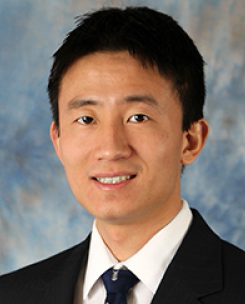 |
Mingyi Hong |
Mingyi Hong received his Ph.D. degree from University of Virginia in 2011. Since August 2017, he has been an Assistant Professor in the Department of Electrical and Computer Engineering, University of Minnesota. From 2014-2017 he has been a Black & Veatch Faculty Fellow and an Assistant Professor with the Department of Industrial and Manufacturing Systems Engineering, Iowa State University. Since Jan. 2017, he has been serving on the IEEE Signal Processing Society Signal Processing for Communications and Networking (SPCOM) Technical Committee. His works have been selected as finalists for the Best Paper Prize for Young Researchers in Continuous Optimization by the Mathematical Optimization Society in 2013, 2016. His research interests are primarily in the fields of optimization theory and applications in signal processing and machine learning.
 |
Mykel Kochenderfer |
Mykel Kochenderfer is Assistant Professor of Aeronautics and Astronautics and Assistant Professor, by courtesy, of Computer Science at Stanford University. He received his Ph.D. from the University of Edinburgh in 2006 where he studied at the Institute of Perception, Action and Behaviour in the School of Informatics. He received B.S. and M.S. degrees in computer science from Stanford University in 2003. Prof. Kochenderfer is the director of the Stanford Intelligent Systems Laboratory (SISL), conducting research on advanced algorithms and analytical methods for the design of robust decision making systems. Of particular interest are systems for air traffic control, unmanned aircraft, and other aerospace applications where decisions must be made in uncertain, dynamic environments while maintaining safety and efficiency. Research at SISL focuses on efficient computational methods for deriving optimal decision strategies from high-dimensional, probabilistic problem representations.
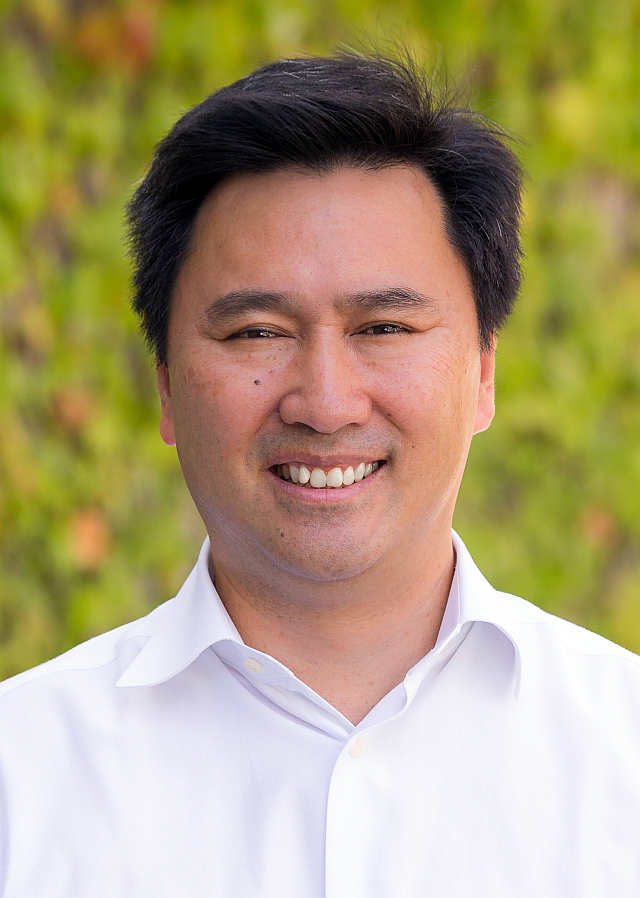 |
Bill Lin |
Bill Lin is Professor of Electrical and Computer Engineering and Adjunct Professor of Computer Science and Engineering at the University of California, San Diego (UCSD). He is a Principal Investigator at the UCSD Center for Networked Systems and the UCSD Center for Wireless Communications. He holds a BS, a MS, and a Ph.D. degree in Electrical Engineering and Computer Sciences from the University of California, Berkeley. His current research interests include architectures and algorithms for computer networking and data science.
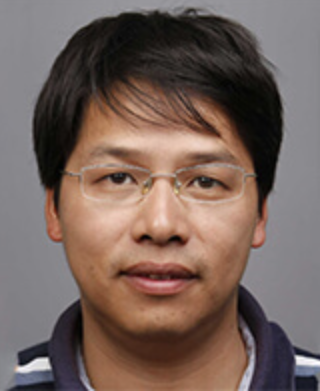 |
Zhouchen Lin |
Zhouchen Lin received the Ph.D. degree in applied mathematics from Peking University in 2000. He worked in MSRA between 1999 and 2012, including his internship. He is currently a Professor at Key Laboratory of Machine Perception (MOE), School of Electronics Engineering and Computer Science, Peking University. His research interests include computer vision, image processing, machine learning, pattern recognition, and numerical optimization. He is an area chair of CVPR 20142016, ICCV 2015 and NIPS 2015 and a senior program committee member of AAAI 20162017/2018 and IJCAI 2016. He is an associate editor of IEEE Trans. Pattern Analysis and Machine Intelligence and International J. Computer Vision. He is an IAPR Fellow.
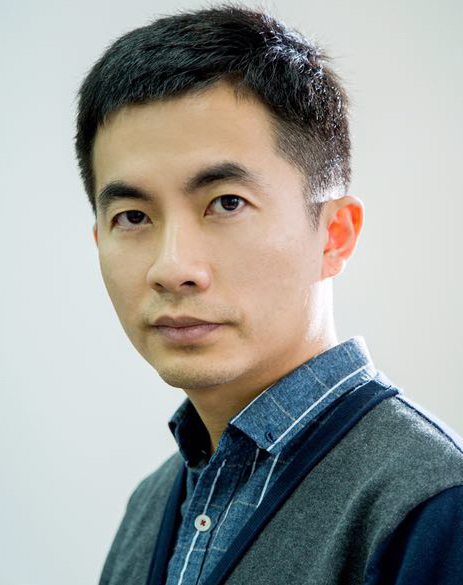 |
Pinyan Lu |
Pinyan Lu is a professor and the founding director of Institute for Theoretical Computer Science at Shanghai University of Finance and Economics (ITCS@SUFE). Before joining SUFE, he was a researcher at Microsoft Research. He is also a visiting Chair Professor of Shanghai Jiao Tong University. He studied in Tsinghua University (BS (2005) and PhD (2009) both in Computer Science). He is interested in theoretical computer science, including complexity theory, algorithms design and algorithmic game theory. Currently, his research is mainly focused on complexity and approximability of counting problems, and algorithmic mechanism design.
Pinyan is the recipient of a number of awards including CCF Young Scientist award, Best Paper Award from ICALP 2007, FAW 2010, ISAAC 2010 and so on. He was invited to deliver a 45-mins invited talk at the International Congress of Chinese Mathematicians (ICCM 2010). He is the PC chairs for FAW-AAIM 2012, WINE 2017, FAW 2018 and so on, and PC members for STOC 2013, FOCS 2015, and a dozen of international conference. He is an Editorial Board Member of the Journal of Discrete Algorithms
 |
John C.S. Lui |
John C.S. Lui is currently the Choh-Ming Li Professor of the CSE Department at The Chinese University of Hong Kong (CUHK) and the associate dean of research at the College of Engineering. His current research interests are in network sciences, network economics, networksystem security (e.g., cloud security, mobile security, …etc), large scale distributed systems and performance evaluation theory. John received various departmental teaching awards and the CUHK Vice-Chancellor's Exemplary Teaching Award, as well as the CUHK Faculty of Engineering Research Excellence Award (2011-2012). He is a co-recipient of the IFIP WG 7.3 Performance 2005, IEEEIFIP NOMS 2006 and SIMPLEX’14 Best Paper Awards. He is an elected member of the IFIP WG 7.3, Fellow of ACM, Fellow of IEEE, Senior Research Fellow of the Croucher Foundation and the past chair of the ACM SIGMETRICS (2011-15). His personal interests include films and general reading.
 |
Tao Mei |
Tao Mei is a Senior Researcher and Research Manager with Microsoft Research Asia. His current research interests include multimedia analysis and computer vision. He is leading a team working on image and video analysis, vision and language, and multimedia search. He has authored or co-authored over 150 papers with 11 best paper awards. He holds over 50 filed U.S. patents (with 20 granted) and has shipped a dozen inventions and technologies to Microsoft products and services. He is an Editorial Board Member of IEEE Trans. on Multimedia, ACM Trans. on Multimedia Computing, Communications, and Applications, and Pattern Recognition. He is the General Co-chair of IEEE ICME 2019, the Program Co-chair of ACM Multimedia 2018, IEEE ICME 2015, and IEEE MMSP 2015. Tao is as a Fellow of IAPR and a Distinguished Scientist of ACM.
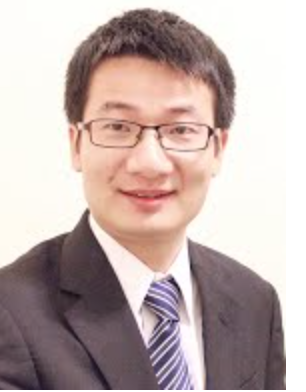 |
Ruoyu Sun |
Ruoyu Sun is an assistant professor in UIUC IS&E department. Previously he worked at FAIR (Facebook Artificial Intelligence Research) as a (full-time) visiting researcher. Before that he was a postdoctoral scholar in Dept. of Management Science & Engineering at Stanford University, working with Yinyu Ye. He obtained my Ph.D. in Electrical Engineering at the University of Minnesota in 2015, under the supervision of Zhi-Quan (Tom) Luo. He received the B.Sc. degree in mathematics from Peking University, Beijing, China in 2009.
His research interest mainly lies in large-scale optimization and its application in machine learning, data analysis and signal processing. He has also worked on signal processing and information theory for wireless networks. He has received the second place of INFORMS Nicholson student paper competition for his work on randomly permuted ADMM, and the honorable mention of INFORMS optimization society student paper prize on matrix completion via non-convex factorization.
 |
Lieven Vandenberghe |
Lieven Vandenberghe is Professor in the Electrical and Computer Engineering Department at the University of California, Los Angeles, with a joint appointment in the Department of Mathematics. He received a Ph.D. in Electrical Engineering from K.U. Leuven, Belgium, in 1992. He joined UCLA in 1997, following postdoctoral appointments at K.U. Leuven and Stanford University, and has held visiting professor positions at K.U. Leuven and the Technical University of Denmark. He is coauthor (with Stephen Boyd) of the book Convex Optimization (2004) and editor (with Henry Wolkowicz and Romesh Saigal) of the Handbook of Semidefinite Programming (2000). His research interests are in optimization, systems and control, and signal processing.
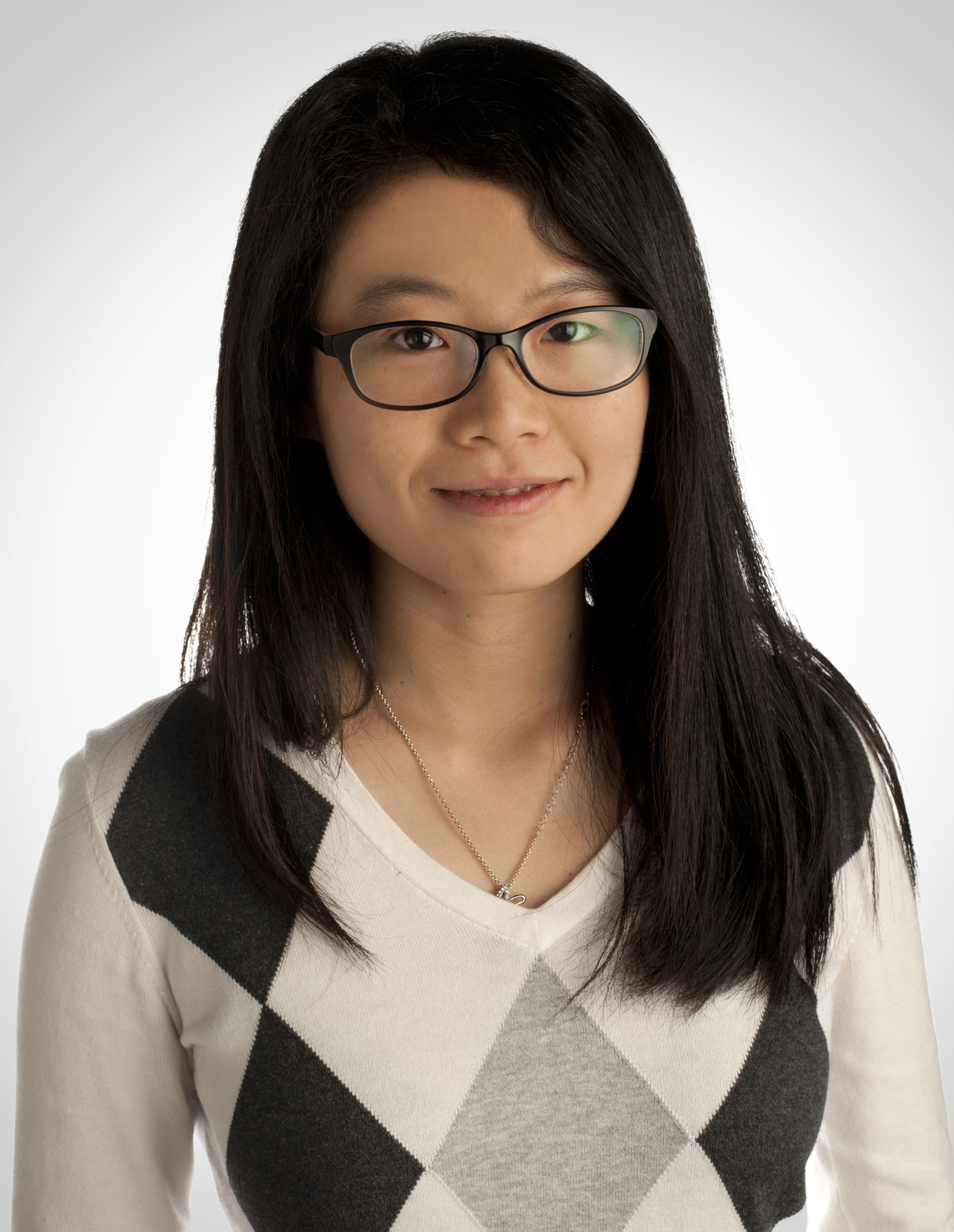 |
Mengdi Wang |
Mengdi Wang is an assistant professor at the Department of Operations Research and Financial Engineering, Princeton University. Mengdi Wang's research focuses on data-driven stochastic optimization that arises from machine and reinforcement learning and involves uncertainty or hidden information. She received her PhD in Electrical Engineering and Computer Science from Massachusetts Institute of Technology in 2013. At MIT, Mengdi was affiliated with the Laboratory for Information and Decision Systems (LIDS) and advised by Dimitri P. Bertsekas. Mengdi became an assistant professor at Princeton in 2014. She received the Young Researcher Award of the Mathematical Optimization Society in 2016 (awarded once every three years), the Princeton SEAS Innovation Award in 2017, and received the NSF Career Award in 2017.
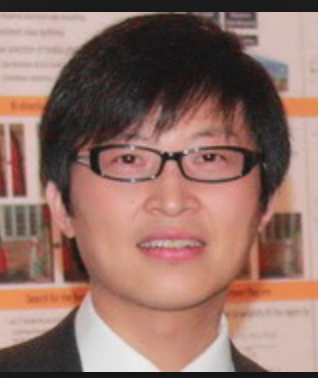 |
Hongkai Xiong |
Hongkai Xiong is currently a Distinguished Professor of School of Electronic Information and Electrical Engineering, Shanghai Jiao Tong University (SJTU). His research interests mainly focus on signal processing, image and video coding, multimedia communication, computer vision and learning, where he published over 190 refereed journal and conference papers. His research projects are funded by NSF of China, QUALCOMM, MICROSOFT, INTEL, etc.
Since he received his Ph.D. degree from SJTU in 2003, he has been with Department of Electronic Engineering in SJTU. During 2007-2008, he was a research scholar in the Department of Electrical and Computer Engineering of Carnegie Mellon University (CMU). From 2011 to 2012, he was a scientist with the Department of Biomedical Informatics at the University of California, San Diego (UCSD). In 2014, Dr. XIONG was granted National Science Fund for Distinguished Young Scholar. In 2016, Dr. XIONG was granted the Yangtze River Scholar Distinguished Professor from Ministry of Education of China, and the Youth Science and Technology Innovation Leader from Ministry of Science and Technology of China. He was awarded Shanghai Academic Research Leader and Shanghai Youth Science and Technology Talent as well. In 2013, he was awarded a recipient of Shanghai Shu Guang Scholar. In 2017, he was the recipient of the Baosteel Excellent Teacher Award. In 2011, he obtained the First Prize of the Shanghai Technology Innovation Award for “Network-oriented Video Processing and Dissemination: Theory and Technology”. In 2010 and 2013, he obtained the SMC-A Excellent Young Faculty Awards of Shanghai Jiao Tong University. In 2009, he was awarded a recipient of New Century Excellent Talents in University, Ministry of Education of China. He is a senior member of the IEEE since 2010.
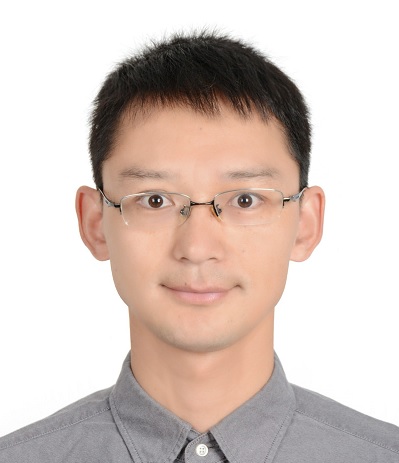 |
Qing Ling |
Qing Ling received the B.E. and Ph.D. degrees from Department of Automation, University of Science and Technology of China, in 2001 and 2006, respectively. He was a Postdoctoral Research Fellow in the Department of Electrical and Computer Engineering, Michigan Technological University from 2006 to 2009, and an Associate Professor in the Department of Automation, University of Science and Technology of China, from 2009 to 2017. He is currently a Professor in the School of Data and Computer Science, Sun Yat-Sen University. His research interests include decentralized network optimization and its applications. Dr. Ling is a recipient of the 2017 IEEE Signal Processing Society Young Author Best Paper Award as a supervisor, and the 2017 International Consortium of Chinese Mathematicians Distinguished Paper Award. He is an Associate Editor of IEEE Signal Processing Letters.
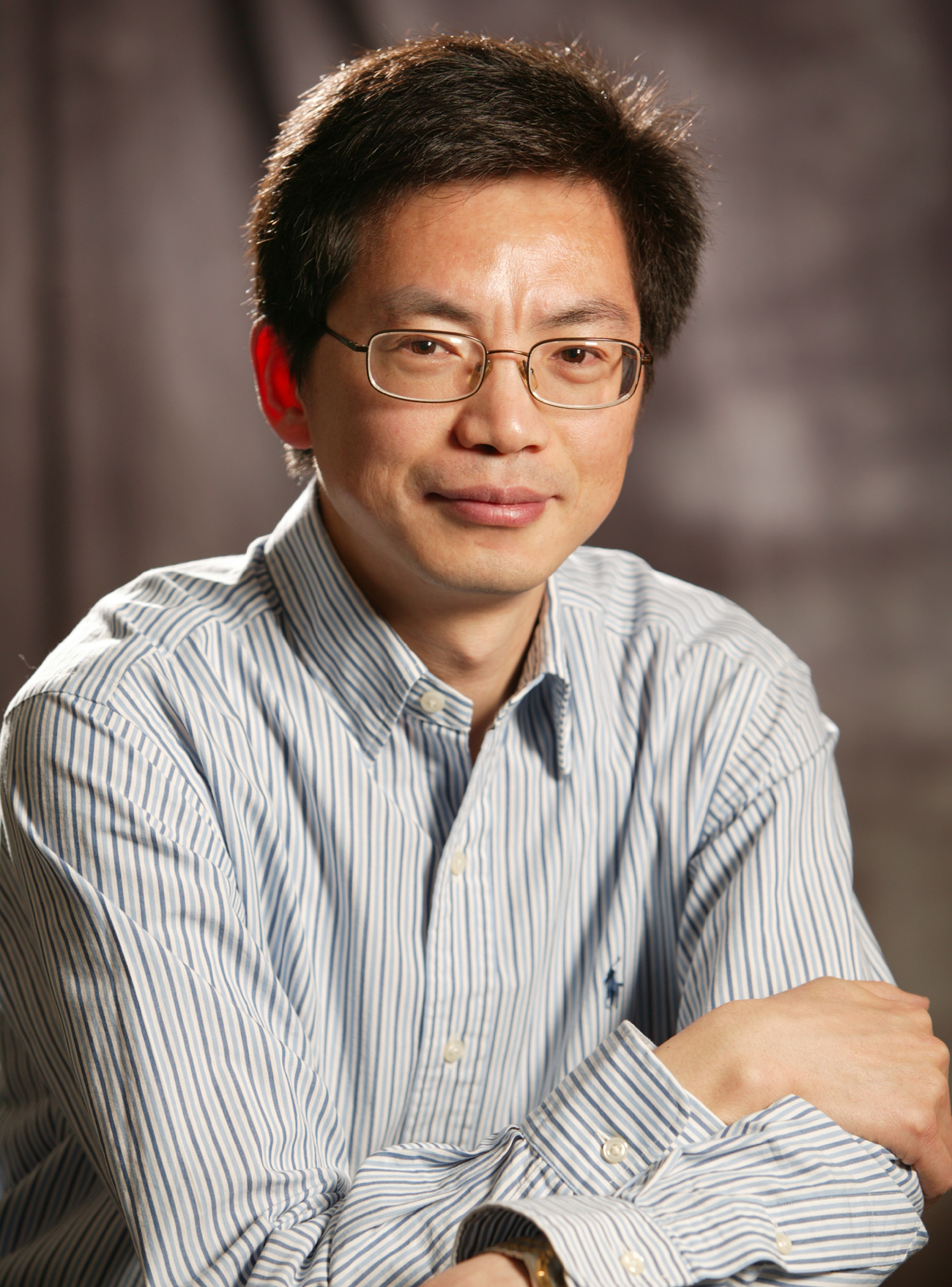 |
Enhui Yang |
En-hui Yang has been with the Dept. of Electrical and Computer Engineering, University of Waterloo, Ontario, Canada since June 1997, where he is now a Professor and Canada Research Chair in information theory and applications. He is the founding director of the Leitch-University of Waterloo multimedia communications lab, a co-founder of SlipStream Data Inc. (now a subsidiary of BlackBerry), and the founder of BicDroid Inc. He currently also serves as an Executive Council Member of China Overseas Exchange Association, an Overseas Advisor for the Overseas Chinese Affairs Office of the City of Shanghai, a director of the Board of Trustees of Huaqiao University, China, and an Expert Advisor for the Overseas Chinese Affairs Office of the State Council of China.
He served, among many other roles, as a review panel member for the International Council for Science; an Evaluator for the 2017 Japan Prize (second only to the Nobel Prize in prestige and monetary value); an Associate Editor for IEEE Transactions on Information Theory; a general co-chair of the 2008 IEEE International Symposium on Information Theory, the largest premier international conference on information theory in the world; a technical program vice-chair of the 2006 IEEE International Conference on Multimedia & Expo (ICME); the chair of the award committee for the 2004 Canadian Award in Telecommunications; a co-editor of the 2004 Special Issue of the IEEE Transactions on Information Theory; a co-chair of the 2003 US National Science Foundation (NSF) workshop on the interface of Information Theory and Computer Science, the purpose of which is to advise NSF about research directions and support in the interface area; and a co-chair of the 2003 Canadian Workshop on Information Theory.
Dr. Yang is a Fellow of IEEE, a Fellow of the Canadian Academy of Engineering, and a Fellow of the Royal Society of Canada. He is also a recipient of several awards, a partial list of which includes the prestigious Inaugural Ontario Premier’s Catalyst Award in 2007 for the Innovator of the Year;the 2007 Ernest C. Manning Award of Distinction, one of the Canada's most prestigious innovation prizes; the 2013 CPAC Professional Achievement Award; the 2014 IEEE Information Theory Society Padovani Lecture Award; and the 2014 FCCP Education Foundation Award of Merit. Products based on his early inventions and commercialized by his previous company, SlipStream, received the 2006 Ontario Global Traders Provincial Award. His research interests include information theory, information security, multimedia compression, digital communications, and big data analytics. His research work has benefited billions of people over 170 countries through commercialized products, video coding open sources, and video coding standards. In 2011, he was selected for inclusion in Canadian Who’s Who.
|
|
Tong Zhang |
Tong Zhang is a machine learning researcher, and the executive director of Tencent AI Lab. Previously, he was a professor at Rutgers university, and worked at IBM, Yahoo, and Baidu. Tong Zhang's research interests include machine learning algorithms and theory, statistical methods for big data and their applications. His research has been supported by many grants from funding agencies such as NSF and NIH. He is a fellow of ASA and IMS, and he has been in the editorial boards of leading machine learning journals and program committees of top machine learning conferences. His Google scholar page can be found here.
Tong Zhang received a B.A. in mathematics and computer science from Cornell University and a Ph.D. in Computer Science from Stanford University.
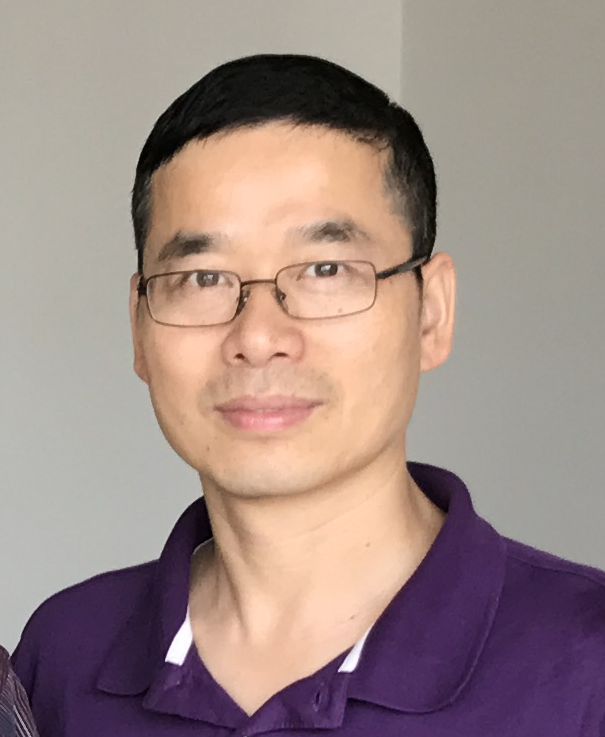 |
Weifeng Zhang |
Weifeng Zhang is a researcher and senior director at Alibaba Infrastructure Services Group, interested in heterogeneous acceleration for machine learning. Prior to joining Alibaba, he was a director at Qualcomm Inc, San Diego, focusing on compilation and optimization of Qualcomm Adreno graphics processing unit (GPU). He was also a Qualcomm representative at Khronos Group, looking into the next-generation of industrial standards of lightweight computation APIs and neural network exchange format. Weifeng Zhang received a B.S. in electrical engineering from Wuhan University, China, and Ph.D in computer science & engineering from University of California, San Diego.
Special guests
深圳市科创委相关领导
腾讯AI研究院相关团队